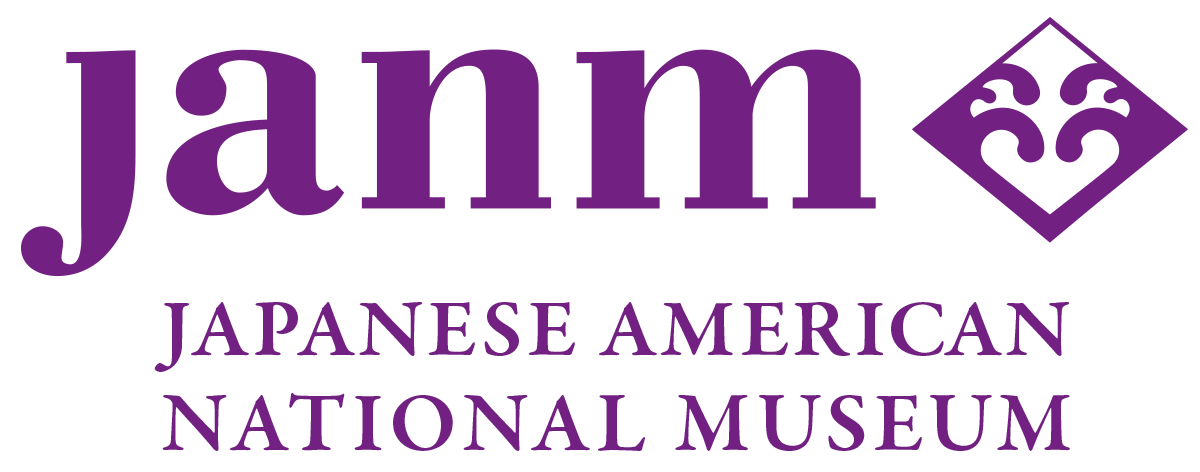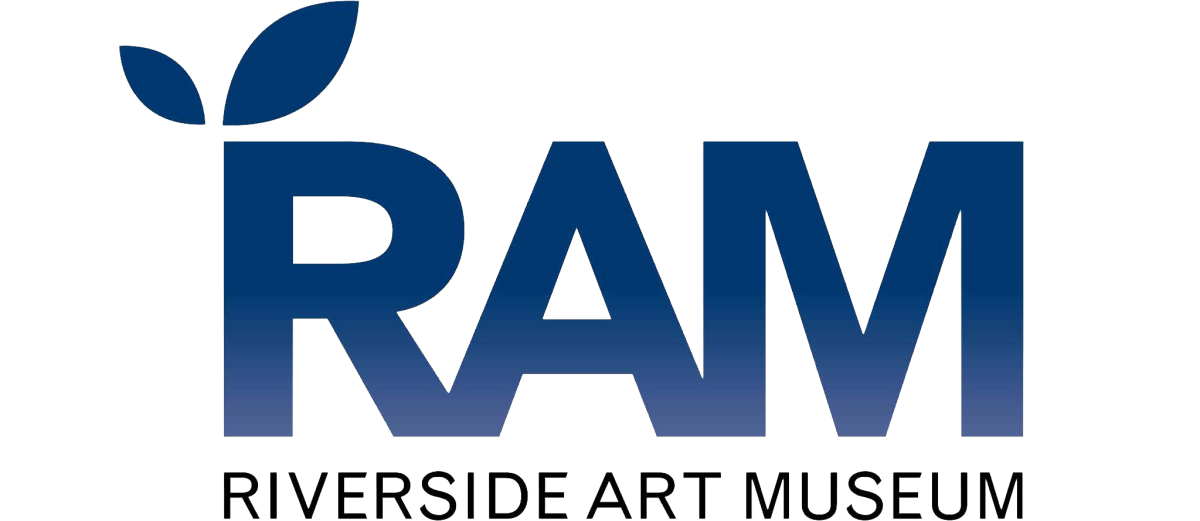FOR IMMEDIATE RELEASE - September 19, 2023
PRESS CONTACTS:
Media Relations - mediarelations@janm.org - 213.830.5690


Southern California Museums Host “Climates of Inequality” Exhibition
 |
 |
|
Japanese American National Museum |
Riverside Art Museum |
Los Angeles & Riverside, CA, September 19, 2023 – A nationally touring exhibition will make two back-to-back stops in Southern California to share how local environmental histories are intertwined with movements for racial, immigrant, and labor rights as well as equitable access to affordable housing, clean air, and green space. Using virtual reality, audio testimony, and historical imagery to delve into the deep roots of climate inequality and environmental injustice, Climates of Inequality: Stories of Environmental Justice is accompanied by a series of locally produced public programs. The exhibition will be on view at the Japanese American National Museum (September 24 through October 1, 2023) and the Riverside Art Museum (October 14 through November 5, 2023).
In addition to stories drawn from communities across the United States, Mexico and beyond, two local narratives will be on view: “Reimagining Immigrants and Environmental Justice,” a collaboration among students and faculty from California State University, Northridge, University of California, Santa Barbara, and Padres Pioneros; and “Witnessing the Slow Violence of the Supply Chain,” a collaboration among students and faculty from University of California, Riverside and People’s Collective for Environmental Justice. All worked alongside a coalition of universities and community organizations led by the Humanities Action Lab at Rutgers University-Newark.
Liz Sevcenko, founder of the Humanities Action Lab, emphasizes that Southern California partners’ work provides critical lessons and inspiration for others across the country. “Climates of Inequality brings history to the climate fight in two ways: increasing communities’ knowledge of histories that help guide a path through the climate crisis, and building skills to practice public history as a resiliency strategy. We hope to help audiences understand environmental inequality and its implications for climate change, by sharing both scholarship and community narratives.”
Speaking about the significance of the exhibition, Catherine Gudis, Associate Professor of History and Director of Public History at UCR, said, “This exhibition powerfully illustrates the ways that impacts of climate change have been felt disproportionately by communities of color and working people, historically, as well as how communities have organized for change, and use art, music, and the power of story to do so. It sparks conversation and the creativity we need to collectively reimagine a more equitable future, even as we continue to uplift stories of the past.”
“Public programming will bring together activists, scholars, writers, and community members who are open to dialogue about concerns related to environmental justice in their local communities,” said Stevie Ruiz, Associate Professor of Chicana/o Studies at CSUN. “Our community members stand committed to ensuring the public obtains a greater awareness about climate equity and social justice.”
For details on the exhibition and public programs, visit www.janm.org and www.riversideartmuseum.org. Read about Climates of Inequality at https://climatesofinequality.org. Watch the trailer about the project.
LINKS + CAPTIONS FOR PRESS IMAGES
MEDIA CONTACTS: Sherrill Ingalls (213) 830-5690 singalls@janm.org
Yvette Shearer (310) 213-5682 yvette@shearerpr.com
Melissa Richardson Banks (213) 446-3467 art@causeconnect.net
PUBLIC PROGRAMS FOR “CLIMATES OF INEQUALITY” in LOS ANGELES & RIVERSIDE
All are free, open to the public, and include same-day museum admission at the public program venue. If noted, reservations are required, but walk-up attendance is available if space permits.
Thursday, September 28, 7:00 PM to 8:30 PM at the Japanese American National Museum, National Center for the Preservation of Democracy - Panel Discussion: From the Ground Up: Creating Heat and Climate Resilient Communities brings City officials together with community-based groups to consider how we can all work together on the pressing issues of rising heat as a result of climate change. It is well documented that these impacts are felt the most in underserved communities of color. How do we begin to address historically disinvested areas of Los Angeles where the connection among issues of climate, health, and equity are inextricably tied? And how do we tackle those issues with broader engagement that values the perspectives of communities bearing the burdens?
Saturday, September 30, 9:00 AM to 5:30 PM at the Japanese American National Museum - Symposium and Film Screening: Manzanar, Diverted: When Water Becomes Dust: This inspired and poetic portrait of a place and its people focuses on the World War II concentration camp at the foot of the majestic snow-capped Sierra mountains as the confluence for memories of Payahuunadü, the now-parched “land of flowing water.” Intergenerational women from Native American, Japanese American, and rancher communities form an unexpected alliance to defend their land and water from Los Angeles. Spanish/English translation available.
Saturday, October 14, 4:30 PM to 7:00 PM at UCR ARTS (3824 Main St, Riverside, CA 92501) - Film Screening | Filmmaker Discussion | Musical Performance | Reception: Manzanar, Diverted: When Water Becomes Dust: This event launches the Manzanar, Diverted Augmented Reality visual sound bath experience. Before the screening, Alexander Miranda, member of the composing team and a Payómkawichum (Pechanga Band of Luiseño Indians) artist, will play his array mbira. After the screening, audiences can don VR headsets to experience the AR visual sound bath of scenes of Payahüünadü in the 360 mode.
Sunday, October 22, 2:00 PM to 4:00 PM at Riverside Art Museum - Listening Session and Public Conversation: Climates of Inequality: EJ in the I.E.: This dialogue with environmental justice organizers from the Inland Empire will consider how their communities mobilize storytelling for change, to save their lives and those of generations to follow. Free museum entry to registrants. Spanish/English translation available.
Thursday, November 2, 6:00 PM at Riverside Art Museum - Panel Discussion and Exhibition Reception: Environmental Justice in the IE: Community-based Practices in Art and Activism: Local social practice artists, documentarians, and activists Tamara Cedré, Noé Montes, and Anthony Victoria talk about the challenges of representing the slow violence of the supply chain, which digs deep into historical forces of colonialism, extraction, and exploitation of the land and people. With over a billion square feet of warehouses blanketing the I.E. and a vast infrastructure—freeways, railroads, and intermodal rail yards—carrying goods to market, how can the arts help humanize the issues and convey the magnitude of the impacts felt today in Riverside and San Bernardino, where residents experience among the highest rates of air pollution and asthma in the nation.
Saturday, November 4, 10:00 AM to 12:00 PM at Riverside Art Museum - Exhibition Tour and Workshop for Educators: Climates of Inequality: Community-based organizers and instructors in high schools, colleges, and universities are invited to learn and share how to bring regional issues of environmental justice and sustainability into their classrooms. Workshop participants will build upon strategies that can best provide pathways for students to engage in environmental justice work at all levels. Space is limited, so registration is required.
Sunday, November 5, 1:00 PM at Riverside Art Museum - Read Aloud & Artmaking for Children: Cultures of Environmentalism: Children’s books have begun to focus in sensitive ways on conveying issues around climate change, and to teach us how different cultures think about the environment. Families with children ages 3-7 are invited to this bilingual reading of Carole Lindstorm and Michaela Goade’s We Are Water Protectors (2021 Caldecott Medal Winner), and Mona Damluji and Innosanto Nagara’s Together (2021). Spanish/English translation available.
ABOUT (RAM) RIVERSIDE ART MUSEUM & THE CHEECH MARIN CENTER FOR CHICANO ART & CULTURE: RAM is a 501(c)(3) nonprofit organization, which operates the Riverside Art Museum and The Cheech Marin Center for Arts & Culture in Riverside, California proclaimed as the “City of Arts & Innovation.” Admission is valid for The Cheech and Riverside Art Museum (RAM). Purchase tickets at the door or reserve online at https://riversideartmuseum.org/get-tickets. Tickets are $15.95 general; $10.95 seniors, students and educators (ID required); and free for museum members, children under 12, military personnel (active and vets) and accompanying family members. Admission is free on the first Sundays (1-5pm) and the first Thursdays (6-9pm). Public hours for RAM and The Cheech are Wednesday–Saturday 10am to 5pm and Sunday 12-5pm (closed Monday and Tuesday). Check the website www.riversideartmuseum.org for updates or call (951) 684-7111 for more information.
Since 1967, the Riverside Art Museum (3425 Mission Inn Ave., Riverside, CA 92501) has been housed in a 1929 building designed by Hearst Castle and AIA Gold Medal-winning architect Julia Morgan, registered on the National Register of Historic Places, and designated a Historic Landmark by the City of Riverside. Riverside Art Museum integrates art into the lives of people in a way that engages, inspires, and builds community by providing regionally focused exhibitions, programming, events, and arts education programs that instill a lifelong love of the arts.
Open since June 17, 2022, The Cheech Marin Center for Chicano Art & Culture aka “The Cheech” (3581 Mission Inn Ave., Riverside, CA 92501) resides in a renovated mid-century building that originally opened as the City of Riverside, California’s public library in 1964. Dedicated to showcasing Chicana/o/x art, honoring and exploring its continued social, cultural, and political impact, it’s the first cultural center of its kind. The Cheech is home to the unparalleled Cheech Marin Collection of Chicano art. It is a space for continued exhibition, scholarship, and dialogue of Chicano art’s deep roots in the Chicano Movement of the 1960s and 1970s to its contemporary and evolving response to current social conditions and global artistic movements.
ABOUT THE JAPANESE AMERICAN NATIONAL MUSEUM (JANM): Established in 1985, JANM promotes understanding and appreciation of America’s ethnic and cultural diversity by sharing the Japanese American experience. Located in the historic Little Tokyo district of downtown Los Angeles, JANM is a center for civil rights, ensuring that the hard-fought lessons of the World War II incarceration are not forgotten. A Smithsonian Affiliate and one of America’s Cultural Treasures, JANM is a hybrid institution that straddles traditional museum categories. JANM is a center for the arts as well as history. It provides a voice for Japanese Americans and a forum that enables all people to explore their own heritage and culture. Since opening to the public in 1992, JANM has presented over 100 exhibitions onsite while traveling 40 exhibits to venues such as the Smithsonian Institution and the Ellis Island Museum in the United States, and to several leading cultural museums in Japan and South America. JANM is open on Tuesday, Wednesday, and Friday–Sunday from 11 a.m.–5 p.m. and on Thursday from 12 p.m.–8 p.m. JANM is free every third Thursday of the month. On all other Thursdays, JANM is free from 5 pm.–8 pm. For more information, visit janm.org or follow us on social media @jamuseum.
__________________________________________________________________________________________________
CREDITS: Climates of Inequality is collectively produced by the Humanities Action Lab, California State University-Northridge, University of California-Riverside, University of California-Santa Barbara and organizations in 20 other localities, led by Rutgers University-Newark. The project is funded in part by the Geraldine R. Dodge Foundation, the Andrew W. Mellon Foundation, National Endowment for the Arts, California Humanities, Rutgers University-Newark School of Arts and Sciences, College of Humanities at California State University, Northridge, the Pollitt Endowed Term Chair for Interdisciplinary Research and Learning at the University of California, Riverside, and Relevancy & History Project.
